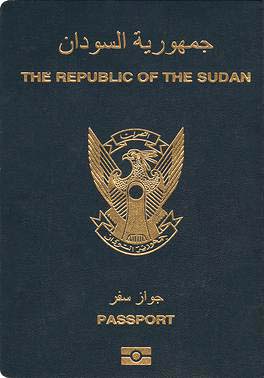UAE suspends ‘emergency’ residence permits for Sudan refugees

Sudanese passport (Govt of Sudan)
The United Arab Emirates’ Federal Authority For Identity, Citizenship, Customs and Port Security (ICP) announced yesterday the suspension of the ‘emergency’ residence permits, which grants residence to those fleeing the ongoing war for Sudanese refugees who possess any type of visit permit. However, Sudanese nationals with cancelled ’emergency’ residence within the UAE are allowed to reapply and obtain new permits within a month, without incurring fines.
A travel agency owner, specialising in UAE entry visas, told Radio Dabanga yesterday that many Sudanese with expired ’emergency’ residence permits had to cancel them to avoid fines for illegal residency. Renewal procedures often take time, prompting this action.
Travel agencies have informed their clients who obtained but have not used entry visas that they must deposit a guarantee of 2,500 Dirhams. Failure to do so will result in visa cancellation 48 hours before entry.
The agency owner confirmed that this measure was necessary to avoid daily fines for delayed entry or exclusion from the e-visa system. Those already in the UAE can renew their residence permits for a month, allowing them to legalise their status or leave the country.
The UAE had previously included Sudan on the list of countries eligible for emergency accommodation following the outbreak of war on 15 April 2024. Sudanese refugees could obtain this permit by paying 1,200 Dirhams annually.
A federal authority decision stipulates that applicants must hold Sudanese citizenship and a passport valid for six months. The ’emergency’ residence is valid for a year and renewable for another 12 months, given the presence of a guarantor or host.
Initially, five of the seven UAE emirates—Abu Dhabi, Dubai, Sharjah, Ajman, and Umm Al Quwain offered the residence permits to Sudanese nationals. However, Dubai ceased issuing these permits six months ago, followed by Sharjah and Ajman two days ago.
Abu Dhabi and Al Ain still accept applications, but with a rejection rate of about 90 per cent. Reports indicate that a day after the suspension decision, Dubai resumed accepting applications from Sudanese nationals, who are now awaiting the outcome.











 and then
and then